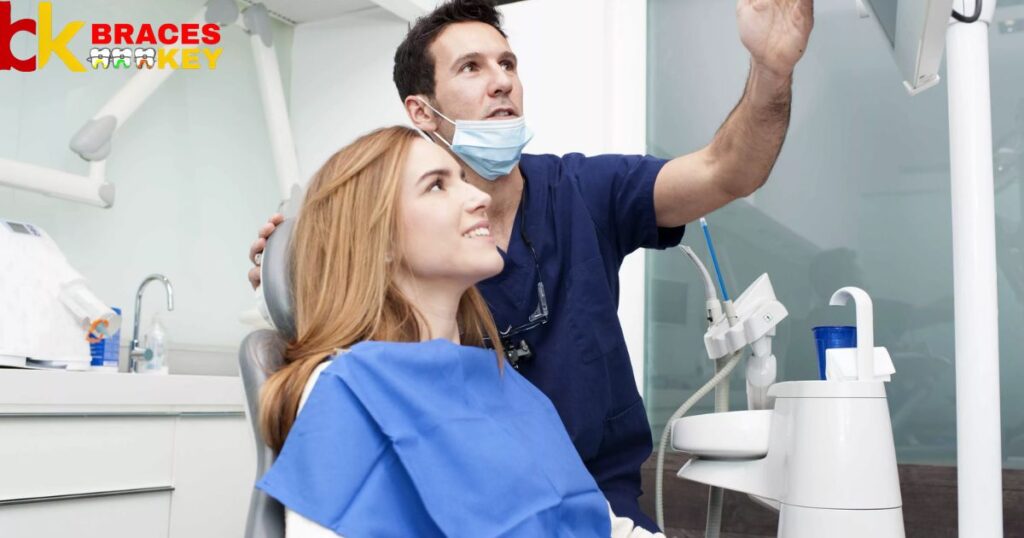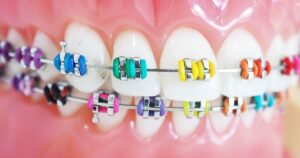When considering whether a divorced parent can be compelled to cover the cost of braces for their child, it revolves around legal and financial obligations. Divorce agreements typically outline parental responsibilities, including child support, but specifics on orthodontic care may vary.
When considering, can a divorced parent be forced to pay for braces?” is a question that often arises in the context of divorce and child support agreements. It’s a complex and emotionally charged issue, and it’s crucial to understand the legal framework and the unique circumstances of each case. Divorce agreements typically outline parental responsibilities, including child support, but specifics on orthodontic care may vary.
In some instances, orthodontic expenses may be deemed a necessary medical cost, falling under the umbrella of child support. The final decision often depends on the divorce agreement, the state’s laws, and whether the treatment is considered essential. To navigate this issue, consulting with a family attorney and discussing the matter with your co-parent is the first step towards finding a resolution that benefits your child’s well-being.
Joint Legal Custody And Braces
Joint legal custody can introduce unique considerations when it comes to decisions about braces for a child. In such arrangements, both parents typically share decision-making authority, making it crucial to collaborate on important matters like orthodontic treatment. Clear communication between parents, often facilitated through a well-detailed parenting plan, ensures that choices regarding braces align with the child’s best interests.
Navigating the intersection of joint legal custody and orthodontic care, like how much do braces cost with aetna insurance? requires open dialogue and cooperation between parents. They should discuss the need for braces, explore treatment options, and agree on the financial aspects involved. By working together, they can provide their child with the best possible orthodontic care.
To Get Joint Legal Custody
To obtain joint legal custody, both parents must work together to make important decisions for their child’s well-being. This arrangement allows shared responsibility for choices related to education, healthcare, and overall upbringing, promoting cooperation and equality in parenting.
Physical Joint Custody
Physical joint custody refers to a shared parenting arrangement where children live with both parents, allowing them to have equal time and involvement in their upbringing. This arrangement promotes a sense of stability and close relationships with both parents, ensuring the child’s well-being and emotional development.
Navigating Orthodontic Decisions with Joint Legal Custody
Navigating orthodontic decisions with joint legal custody can be a challenging but important process for co-parents. It requires open communication and cooperation to ensure the best dental care for their child. Making informed choices together helps maintain a healthy smile and a harmonious co-parenting relationship.
Are Braces Cosmetic Or Medical

Are braces primarily cosmetic or medical in nature? This question often arises when considering orthodontic treatment. While braces can undoubtedly enhance the appearance of your smile, their primary purpose is medical. They serve to correct dental issues like misalignment, overbites, and underbites, which can lead to oral health problems if left untreated.
It’s crucial to recognize that braces offer a dual benefit. They not only improve the aesthetics of your smile but also contribute to your overall oral health. Straight teeth are easier to clean, reducing the risk of issues like gum disease and cavities. While the cosmetic aspect is undoubtedly a significant motivation for many, the medical benefits should not be overlooked. In essence, braces strike a balance between enhancing your smile’s appearance
Are Braces Medically Necessary
Braces, in many cases, are more than just cosmetic enhancements. They can be medically necessary to correct issues like misaligned bites, overcrowded teeth, and jaw misalignments. Orthodontic treatment not only improves the aesthetics of your smile but can also enhance your oral health, prevent dental problems, and alleviate issues like difficulty in chewing or speaking.
The determination of whether braces are medically necessary often depends on an individual’s specific orthodontic needs. Orthodontists assess these needs and recommend braces when they can contribute to better overall health and oral function. So, if you’ve been wondering whether braces are medically required for you or a loved one, it’s essential to consult with an orthodontic professional for a personalized evaluation.
Orthodontic Expenses and Divorce
Orthodontic expenses and divorce can be a challenging combination for many couples. When navigating the complexities of divorce proceedings, it’s crucial to address how orthodontic costs for children will be managed.
Determining responsibilities for ongoing treatment and expenses related to braces or other orthodontic needs is a crucial aspect of the divorce settlement process. Open communication and clarity in legal agreements can help ensure that both parents fulfill their financial obligations while prioritizing their child’s dental health throughout and after the divorce.
A Medical Expense For Child Support
Child support can be a complex and emotionally charged issue, and the consideration of medical expenses adds another layer of financial responsibility. When a child requires medical care not covered by insurance, parents may need to discuss how these costs are divided. It’s essential to establish clear guidelines within the child support agreement to determine how medical expenses.
Ensuring that medical expenses are addressed within the child support arrangement helps promote the child’s well-being and ensures that both parents share the financial burden appropriately. This approach can lead to a more harmonious co-parenting relationship, with the child’s best interests at the forefront.
Are Braces Considered A Medical

Braces, used for orthodontic treatment, are indeed considered a medical expense. The reason is that orthodontic treatment is primarily aimed at improving oral health by aligning teeth, which can have a significant impact on a person’s overall well-being. Many insurance plans and healthcare programs cover a portion of the cost of braces, recognizing their medical necessity.
It’s important to note that the extent of coverage and the specific criteria for medical necessity may vary depending on the insurance provider or healthcare system. Patients and their families often seek financial assistance or insurance plans that cater to orthodontic care to alleviate the cost burden associated with braces, making them more accessible for those in need of this important medical treatment.
Medical Expense For Child Support In Texas
In Texas, when it comes to child support, understanding the allocation of medical expenses is crucial. These expenses typically encompass the child’s healthcare, including insurance premiums, copayments, and even extraneous medical costs not covered by insurance. Often, the court will determine the division of these expenses between both parents based on their incomes and the child’s needs.
It’s important to note that the specific guidelines and regulations may vary, so seeking legal advice or consulting the Texas Family Code can provide a clearer picture of how medical expenses for child support are handled in your individual case. Navigating this aspect of child support is essential to ensure the child’s health and well-being are adequately provided for.
Understanding Texas Child Support Laws
Understanding Texas Child Support Laws is crucial for parents navigating the intricacies of financial responsibility for their children. These laws outline the guidelines for calculating child support payments, ensuring the well-being of the child. A firm grasp of these regulations is essential for parents in Texas to make informed decisions and fulfill their obligations effectively.
Navigating Medical Costs for Children in Texas
Navigating medical costs for children in Texas can be a complex and challenging task for parents. With a myriad of insurance options and healthcare providers, understanding coverage and finding affordable care is crucial. Parents often face a maze of choices and financial decisions to ensure their children receive the best medical treatment without breaking the bank.
FAQ’s
What if my ex won’t pay for braces?
If your ex refuses to pay for braces, you can explore legal options like revisiting your divorce agreement or seeking court intervention.
Can my ex dictate who is around my child?
Generally, your ex can express concerns, but legal authority over who is around your child depends on court orders and custody agreements.
What is a manipulative co parent?
A manipulative co-parent is someone who uses cunning tactics to control or influence the other parent in a shared parenting situation.
What is the lowest you can pay for braces?
The cost of braces can vary, but the lowest you can typically pay is around $3,000 to $4,000, depending on factors like location and type of braces.
Conclusion
In conclusion, the question of Can a divorced parent be forced to pay for braces? is multifaceted. Legal decisions, agreements, and state laws all play a role, making it essential to consult with legal professionals for individual cases. Ultimately, ensuring the child’s dental health and well-being should be the primary focus when addressing this complex issue within the context of divorce.








